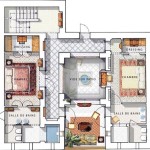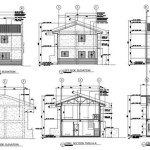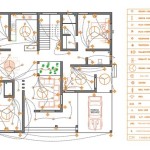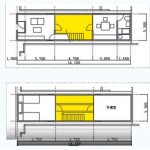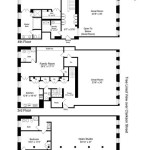Essential Aspects of a Successful Self Build House Project Plan
Embarking on a self build house project is an exciting and rewarding endeavor, but it requires thorough planning and preparation. To ensure a successful outcome, it is crucial to develop a comprehensive project plan that addresses key aspects:
1. Project Definition and Goals
Clearly define the scope, objectives, and desired outcomes of your self build project. This includes determining the size, style, layout, and features of your dream home. Establish a realistic budget and timeline, taking into account potential delays and unforeseen circumstances.
2. Site Assessment and Planning
Thoroughly assess the building site for suitability, considering factors such as topography, soil conditions, accessibility, and local building regulations. Obtain necessary permits and approvals, and develop a detailed site plan that outlines the placement of your house and any other structures.
3. Materials and Construction Methods
Research and select high-quality materials and construction methods that align with your design vision and budget. Explore options such as traditional brick and mortar, timber framing, or sustainable green building materials. Determine the specific techniques and processes involved in constructing your house.
4. Labor and Contractor Management
If you are not planning to complete the entire project yourself, identify and secure reputable contractors for specialized tasks. Establish clear contracts and payment schedules, and ensure that all parties understand their roles and responsibilities.
5. Financial Planning and Budgeting
Develop a detailed budget that accounts for all aspects of the project, including materials, labor, permits, and unexpected expenses. Explore financing options and secure necessary funding to complete the project within your budget constraints.
6. Construction Schedule and Risk Management
Create a realistic construction schedule that outlines the sequence of tasks and their estimated completion dates. Identify potential risks and develop mitigation strategies to minimize delays and avoid costly setbacks.
7. Quality Control and Inspections
Implement a comprehensive quality control plan to ensure that the house is constructed according to your specifications and industry standards. Regularly inspect the work in progress and conduct final inspections upon completion to ensure compliance and safety.
Additional Considerations
In addition to the core aspects outlined above, consider these additional factors for a successful self build house project plan:
- Health and Safety: Prioritize worker safety and implement appropriate measures to minimize risks.
- Sustainability: Incorporate green building practices to reduce the environmental impact of your home.
- Design Collaboration: Ensure open communication and collaboration with architects and engineers.
- Emotional Preparation: Recognize the emotional challenges involved in such a major project and seek support as needed.
By carefully considering and addressing these essential aspects, you can develop a comprehensive and effective self build house project plan that will guide you towards the successful completion of your dream home.

Build Your Own House How To Get Started On Self Project

House Plans How To Design Your Home Plan

Hph112 Getting Planning Permission For A Self Build With Phill Skill House Help

House Plans How To Design Your Home Plan

3d Architect House Designer Pro Professional Home Self Build Softwar Cad Cabin

8 Step Plan Deeside Self Build

3d Architect House Designer Pro Professional Home Self Build Softwar Cad Cabin

Self Build Project Management Swansea Cardiff Neath Port Talbot

Residential House Self Build Architect Kildare

Self Build Ideas And Inspiration Design For Me
Related Posts

